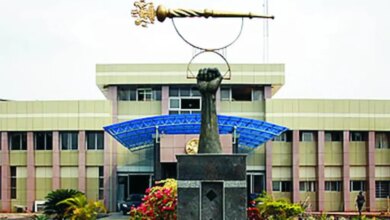Nigeria reviews health laws to overcome barriers in data sharing, surveillance

Nigeria has begun reviewing its public health laws to tackle barriers hindering data sharing and strengthen surveillance systems needed to respond effectively to emerging health threats.
The effort, led by the Nigeria Centre for Disease Control and Prevention (NCDC) in collaboration with global health organisation Resolve to Save Lives (RTSL), aims to create a harmonised legal framework that supports secure, timely and coordinated use of health data across federal and state levels.
As part of the process, a four-day stakeholder workshop was convened to assess existing laws, identify gaps, and propose reforms to improve public health data governance in Nasarawa State on Friday.
The meeting brought together representatives from key ministries, departments, and agencies, including experts in legal affairs, ICT, surveillance, data protection, and planning.
NCDC Legal Adviser, Safiya Musa, underscored the importance of strong legal instruments, saying: “Legal instruments that support data governance are essential for effective epidemic preparedness and response. This workshop is an important step towards building a system that allows for timely sharing of surveillance data while protecting privacy and ensuring security.”
On her part, RTSL Senior Technical Advisor for Health Security and Event-Based Surveillance, Dr. Rabi Usman, stressed that data can only save lives when shared and used effectively.
“Clear legal frameworks that enable secure, timely, and coordinated multisectoral data sharing are critical for preventing epidemics and protecting lives,” she said.
Also speaking, RTSL Senior Legal Advisor, Emem Udoh, highlighted the urgency of dismantling barriers: “Overcoming barriers to public health data sharing is critical to strengthening Nigeria’s surveillance system, and clear legal instruments are essential for ensuring this is done efficiently and ethically. This meeting offers stakeholders the chance to address challenges and agree on the most effective framework for collaborative surveillance.”
Key outcomes include a draft review of current legal instruments, identification of gaps affecting inter-agency collaboration, and recommendations for long-term reforms to Nigeria’s public health legal framework.





